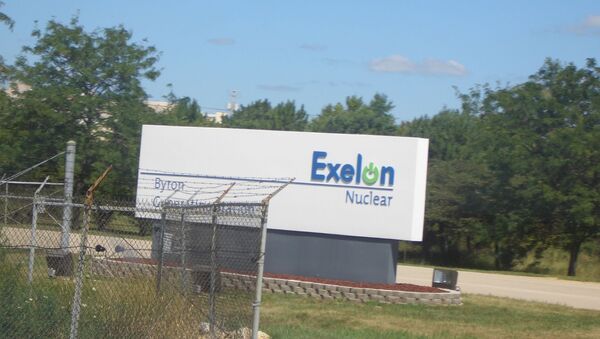Kristian Rouz — Exelon Corp., one of America's largest utility enterprises, offered a $6.8 bln bid to acquire Pepco Holdings Inc. on March 7, set to be one of the biggest merger & acquisition (M&A) deal in the utility sector on record, stirring a debate over a suspected monopolization in the industry. The deal was first announced almost two years ago, and the lengthy proceedings, requiring Washington's involvement obviously due to the scale of the aftermath, forming the nation's utility giant, finally ended on March 23 with the approval by the District of Columbia's Public Service Commission (PSC). The deal was favored by the PSC in a 2-1 vote, entailing consequences for both the US utility sector and consumers alike.
The Chicago-based Exelon acquired the regional electricity provider Pepco several hours after the PSC approval was granted, and the same day, Wednesday, Pepco's stock skyrocketed by 28% only to stop trading on Thursday. Even though Exelon has repeatedly vowed customer benefits would be transferred, the utility market is now subject to noticeable change.
The US utility sector has been a poor performer even since energy prices collapsed in late 2014, and the industry struggled amidst the sliding rates. Even rising consumer demand stemming from lower utility bills would provide little help. Utility enterprises are facing rather high expenses on constant furnace upgrades, whilst demand for electricity is insufficient and prices have been low for over a year and a half. To make things worse, the Democrat-backed environmental regulations put even more pressure on utility providers, meaning an inevitable decline in competitiveness, the amount of companies, and eventually rising M&A activity, bearing risks of monopolization.
Yet, any monopolization triggers inevitable consequences. For the utility industry those include shrinking competition in the market as it is harder to compete with industry heavyweights, and, subsequently, rising inefficiency in both customer service and stock market performance. For consumers, the main issue is rising prices, and/or indirect utility costs, as the prices freeze might be easy to circumvent. Declining service quality might also be lined up.
Debate is rife of whether Exelon would raise consumer prices as soon as next summer in order to help its electricity division stay afloat (Pepco has long been struggling financially prior to the acquisition). Besides, Pepco has not hiked rates since about early 2014, partially explained by the slump in energy costs, yet, the maintenance and renovation expenses have mounted ever since.
Meanwhile, Exelon committed to develop cutting-edge clean energy in DC as part of the deal with PSC, allocating as much as $11.25 mln to improve the efficiency of its operations. Besides, the utility giant vowed to be producing some 7 megawatts of solar energy by late 2018 at its own expense.
The deal sound promising, but ultimately, how is the new utility heavyweight expecting to cover such massive expenses whilst energy prices are low and consumption is weak?
"Expensive wedding gifts are nice," Betty Kane, PSC Chair, said. "But all the wedding gifts in the world can't make a bad marriage good."
Besides DC, the Exelon-Pepco deal was granted approval by most regional authorities, including those in Delaware, Maryland, New Jersey, Virginia, and by federal watchdogs.
Since the initial three-year rate freeze is not included in the final agreement, Exelon might seek to raise rates immediately, and there is no way consumers could oppose rate increases.
While both consumers and utility sector suffer the avid monopolization going on, Pepco's shareholders can celebrate, capitalizing on the gains in stock. Yet, the recent stock market dynamics suggest utilities are not the best investment in a longer-term, although further M&A's to follow might entail a windfall of money for select smaller companies' stockholders.




